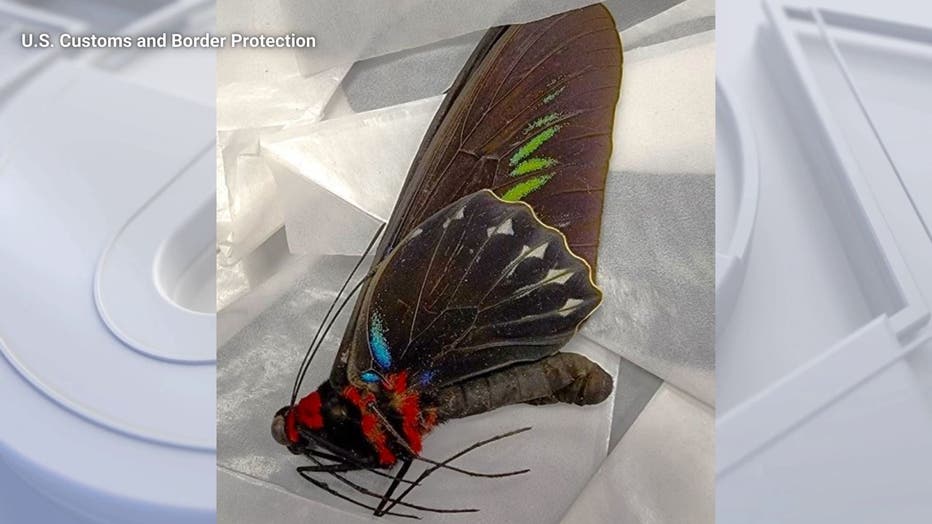Thousands of animal contraband seized at LAX by authorities since Oct. 2023

Exotic wildlife contraband seized at LAX
Thousand of contraband animal items have been seized at LAX since October, including crocodile and turtle skulls, elephant toenails, shark cartilage and more.
LOS ANGELES (CNS) - Thousands of items of wildlife contraband have been seized since October by inspectors assigned to the Los Angeles International Airport's International Mail Facility, officials announced Friday.
"Since the beginning of 2024 fiscal year -- Oct. 1, 2023 -- to date, U.S. Customs and Border Protection officers and agriculture specialists ... in coordination with U.S. Fish and Wildlife Service officials detained 4,227 animal and plant products for violating wildlife laws and regulations and international endangered species conventions," Jaime Ruiz of U.S. Customs and Border Protection said in a statement.
Among the detained products were: crocodile skulls, jerky, belts, wallets, taxidermy baby crocodiles, turtle skulls, skins, kangaroo meat, tails, ears, elephant toenails, exotic butterflies, peacock feathers, sea shells, coral, sea cucumbers, shark cartilages and sea lion oil gelcaps, Ruiz said.

The seized products arrived in individual packages via air mail from Singapore, Vietnam, Australia, China, Thailand, the United Kingdom, Mexico and Peru, and were heading to addresses all over the United States, Ruiz said.
Ruiz, in his statement, warned international travelers to "think twice about the souvenirs you buy."
"You'll find many wildlife and plant products for sale around the world," Ruiz said. "As an international traveler, you can support conservation worldwide by asking questions and learning the facts before you buy any wildlife or plant product.
"Just because you find an item for sale does not mean it is legal to import," Ruiz said. "Some of these products may be made from illegally taken animals or plants and may not be exported or imported. Others may require permits before you can bring them home to the United States. By making informed choices, you can avoid losing your souvenir or paying a fine."
More information is available at www.fws.gov/service/permits.
"CBP agriculture specialists are the frontline in the fight against the global trafficking of protected wildlife and plant species," said Cheryl M. Davies, CBP director of Field Operations in Los Angeles. "Every single day, they bring their natural sciences knowledge, expertise and unique skills to identify, intercept and seized suspected shipments."
"Illegal wildlife trafficking is one of the most profitable natural resource crimes," said Andrew H. Douglas, CBP port director of Los Angeles International Airport. "It encompasses the harvesting and selling of wildlife and wildlife products to be used as medicine, fashion, food or pets sold to consumers."

